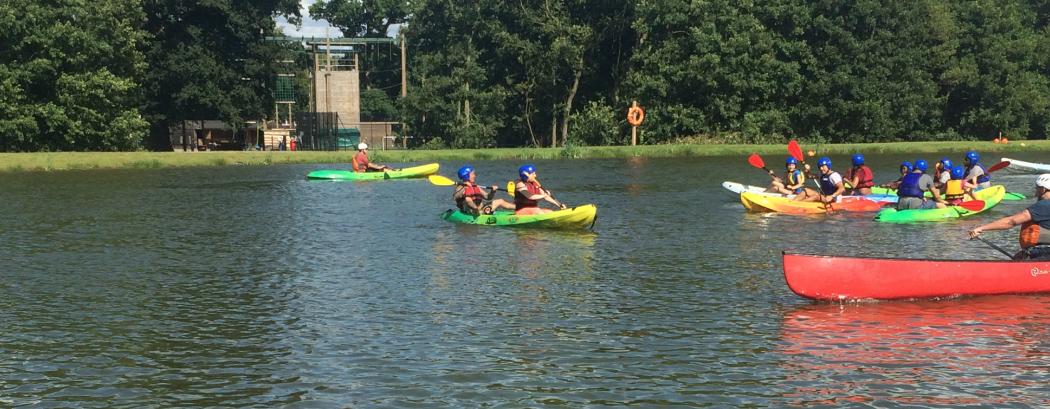
As of 19th May 2022, 11,620,772 children globally have taken part in Outdoor Classroom Day. The event, which happens twice a year, is a great opportunity to get students outdoors to enjoy educational and fun activities.
As outdoor education advocates, JCA has compiled some of the benefits of outdoor learning and why we recommend teachers, as well as parents, to take part in this inspiring campaign.
Being more active improves physical health
Pupils spend a lot of time sitting in the classroom and can get restless. Finding time to practice outdoor activities is essential to remind teachers, parents and children that being active is part of a balanced lifestyle. The NHS recommends that to stay healthy, children and young people should practice 60 minutes of physical activity every day and undertake more vigorous exercise 3 times a week (1). A good amount of physical activity not only helps physical health, but also benefits mental wellbeing.
Healthy body, healthy mind
A well-known adage, but not always put into practice. Outdoor learning and activities promote the release of dopamine and serotonin which are proven to decrease stress and increase sensations of safety and wellbeing (2). After spending time outdoors, students will feel refreshed, more alert, happier and content. Learning in a new environment instead of the typical classroom is an excellent opportunity to get children to develop new skills, try new things and test their limits.
Building stronger bonds
Whether you decide to send your class on a quest through the woods, take part in a sporting event, attempt a completely new challenge, or play educational games, Outdoor Classroom Day is the perfect time for students to build stronger bonds, strengthen existing friendships, and learn how to work as a team. It will not only impact their development but also their character growth. A study has highlighted that students that were engaged in outdoor learning experiences became more aware of personal and social developments in their lives (3).
Remind pupils that learning is fun!
Outdoor Classroom Day is a great reminder that there are loads of ways to integrate outdoor learning into your curriculum. It is a chance to be creative and do something original. Teach pupils about world religions with outdoor Diwali, practice science or geography by investigating a park near your school, get arty with a Japanese Hapa-Zome lesson in the woods… There is a never-ending and exciting list of things you can do to get students involved and enjoy learning in an outdoor, fun environment.
Discovering new activities – time to inspire
Getting out of the classroom can be the chance for children to try a new sport or activity they haven’t tried before and get inspired to take on a new hobby. Some might discover that they are good at kayaking and start to practice in their own time, others might enjoy learning about the local fauna and flora and decide to take part in local sustainability initiatives. It’s also very possible that pupils who are less engaged in the classroom find their forte when learning in a different and stimulating environment.
The facts
Last year, JCA did some research on academic studies which look at the benefits of outdoor education. We created an infographic based on these findings, a short and sweet summary so you can get all the facts in one look.
The benefits of outdoor learning can be seen across the board, in the improved physical and mental well-being of pupils, in their development and social skills, in their drive to take on new challenges and where they take their inspiration for learning from. These, as well as countless more, are all great reasons for your school to get involved on Outdoor Classroom Day!
Don’t hesitate to check out Outdoor Classroom Day website for more information and ideas on what to do on the day.
- (1) NHS Physical Activity Guidelines
- (2) JCA 2017 infographic
- (3) JCA 2017 infographic
Get in touch today!
To find out more and book an activity trip for your group, please contact one of our friendly team members on 01273 647 200 or simply fill in our quick enquiry form now.
